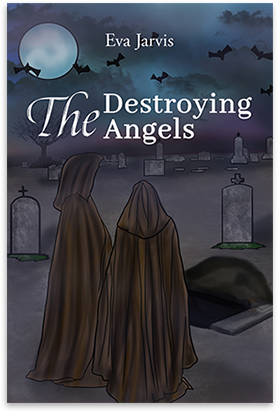
THE GHOST IN THE WELL
When Churchill sought solace in puffing rings of smoke from his cigar,
sipping whiskey from his tumbler, he must have looked awkwardly at the
footprints of war scattered all over the place. In a twist of events, at
the end of the six-year conflict, new alliances were formed granting
Stalin complete control over the eastern bloc, causing a shift that
moved my grandmother’s homeland from east to west. The betrayal by the
allies was swift and painful. If Churchill peered closely through the
veil of smoke, he would have noticed what giving a ring of power to a
foe did to my grandmother’s fate in the unfolding history of events.
A great
resettlement of a large population was taking place after the war,
compared to wrecking the river systems, and the entire ecosystem because
that is how it felt for people leaving their homes and moving
westwards, displacing the original inhabitants. In the new crafted
borders, the German population had to travel further west to seek
alternative homes. As the front pushed through and drove out the Nazi
troops, not all Germans left as instructed. Many families waited at home
for the return of the German soldiers, in shock that they had lost the
war. They remained despite being ordered to leave the country that
wasn’t theirs anymore.
The destitute Germans heading west faced
many hardships during their long marches—some perished along the way
while others stayed behind, hiding in barns, confused
and terrified. Some German families lived on the outskirts of the
woods, and unable to withstand the freezing temperatures, they too
perished while the new settlers took over their homes and livestock.
Seeking revenge for the war atrocities, the new homeowners often sought
retribution if they found any German still lingering in a village,
clinging to hopes the Führer was alive and well.
The planned
uprooting affected my grandmother, who was forced to move west with her
daughter and a son to a place called Shönlanke. In no time, the town had
been given a new name, but the school she arrived at still bore the
German eagle that nobody bothered to remove. As my grandmother joined a
massive queue at that school grounds fronting the local government
department assigning houses of varying sizes and plots, she was pleased
with the one given to her. The size of the house depended on whether
one could prove ownership before the war. Luckily, my grandmother was
able to produce the necessary paperwork showing that her family were the
landowners before the Bolsheviks confiscated it.
At first
glance, her new property made a good impression with spacious rooms, and
a large fruit orchard featuring a well with a green pump and a chain on
which hung a bucket to draw water.
However, after a few
sleepless nights, my grandmother realised some supernatural occurrences
disturbed her sleep, taking place outside the house. Being
superstitious, she decided the house was haunted. She complained to the
authorities, but no one took her claims seriously or fulfilled her
request to clear the well of the active “ghost” that was preventing her
from using the well to bring water to her garden.
Whenever we
visited my grandmother, I used to play around that well as a child,
dropping nickels for luck, searching for my reflection in the deep
water, despite her warnings to stay away from it. She would explain that
a tortured soul lived there, chewing on her pump, as she proceeded to
tell me a chilling tale.
The days after she took over the house,
her request to the authorities to sanitize the pump, fell on deaf ears.
Resigned to dealing with the blocked well herself, my grandmother asked
her neighbour for help, and they were horrified to fish out a dead man,
wearing a German uniform with a ghastly shotgun wound to his face.
After
stripping him of his insignia and helmet, they decided against
reporting their discovery for fear of being questioned about the
circumstances leading to the drowned man’s death. Accusations of
murdering the enemy were real in those uncertain times, so instead, they
transported the remains in a wagon to the local cemetery. The
understanding priest agreed to bury the body without identification,
ordering a hasty burial attended by my grandmother and her neighbour to
mourn the deceased. Or perhaps they didn’t lament over his passing at
all, as death wasn’t a special event anymore and people became immune to
severe injuries from bullets.
My resourceful grandmother made
use of the helmet by anchoring it near the chicken coup as a feeder for
her hens. She kept the officer’s insignia in a jar with shells as some
morbid trophy. Perhaps, looking at her strange keepsake, she wielded
powers over the ghost in the well, which she claimed was scaring her
hens at night, somehow connected to these items. Most likely, it was
just the wind rattling the chain with the bucket, making ripples in the
water, sifting through her memories of this particularly unpleasant
ghost. Years had gone by, and to my understanding, no one came forth to
claim the dead soldier who as it seems died in vain. Like many others,
they just obeyed orders, moving like pawns around the chessboard of war.
Post Views : 865